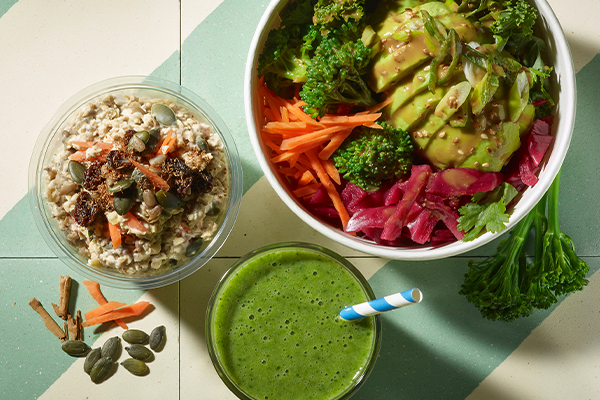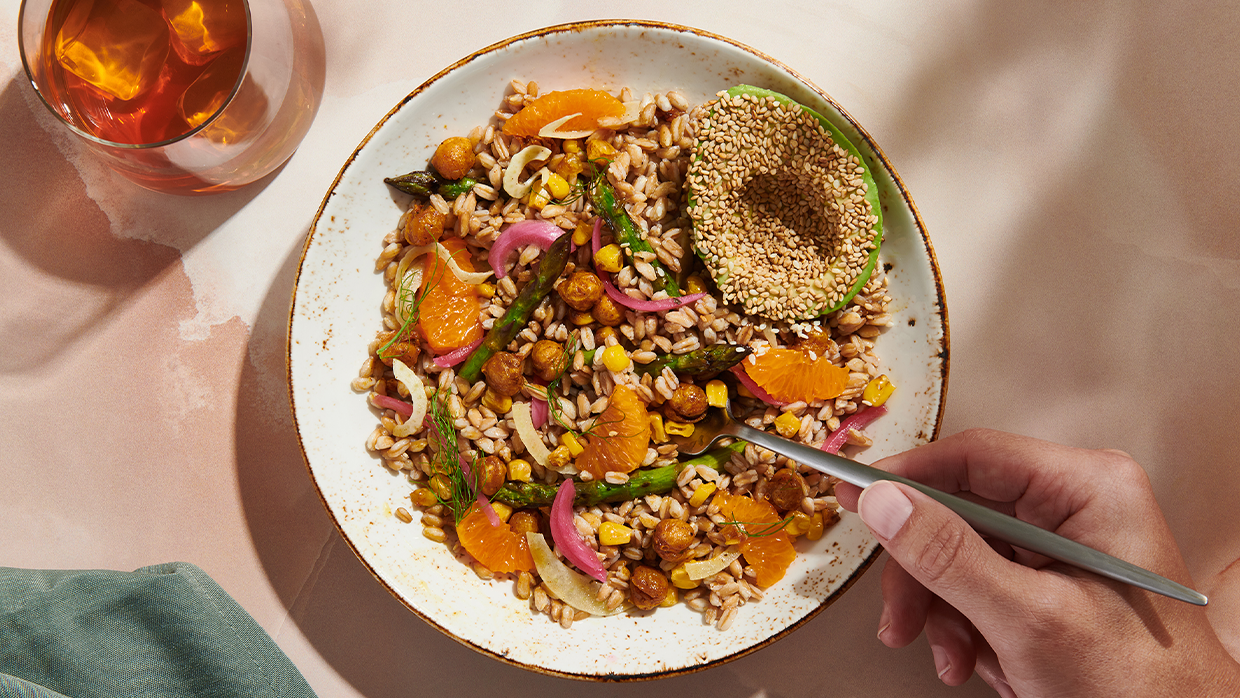Rapid innovation by pharmaceutical companies brought Covid-19 under control but put their teams under pressure in the process. Now, employees in all sectors are facing a wellbeing crisis, so pharma will need to buck the trend if it’s to fight the next global pathogen with equal success. And just like scientists developing the latest microbiome-based therapeutics, we think a holistic approach holds the key.
UK employees are losing one day a week to illness
On average, UK employees lose one day a week – 43.6 days annually – to poor physical or mental health. For those under the age of 30, the number of days lost rose to 59.7, driven by higher rates of burnout, depression and fatigue. Research we completed with YouGov in 2023 revealed a similar picture in the post-pandemic world: 20% of employees reported poor mental and physical health, rising to 28% among Gen Z.
These findings pose two problems for the UK pharmaceutical industry. Firstly, there’s the impact on productivity in the face of growing global competition. And secondly, there’s the intensification of the sector’s growing war for graduate talent.
Prioritising wellbeing in pharma
The pandemic revolutionised the world of work by keeping many of us at home. And while sites in the pharma sector came back to full occupancy faster than most, its people were not immune to a wider shift; 53% of employees said they were more likely to prioritise their health over their work compared to before the pandemic.
For pharma companies looking to innovate at pace, it’s clear that strong wellbeing strategies and supportive workplaces will be essential to attracting and retaining the brightest minds.
As a workplace services provider supporting some of the biggest names in the sector, Sodexo has always known that nutritious food served in welcoming spaces helps teams to perform at their best. Now, we’re helping our pharma clients to capitalise on consumers’ growing interest in healthy eating by nudging people towards food that fuels their performance and their quality of life.
Food as medicine: a growing global trend
As biopharma companies step-up research into the role of the gut microbiome – the collection of microorganisms that support our digestion, immune system and overall wellbeing – consumers are increasingly making ‘gut-friendly’ purchases. Sales of probiotics are expected to grow by 14% a year, reflecting a clear appetite for healthy eating that we’re also seeing in the choices our guests make.
In the 12 months to December 2023, we analysed more than 2.5 million orders and found that sugar consumption is down by 5%, salt by 9% and fat by 12%. These are promising stats, but we’re committed to doing more. As the world’s largest private sector employer of dieticians, we’re also uniquely placed to focus on the intersection between food, science and wellbeing, enabling constant innovation around health and nutrition at work.
Recipes that nourish body and mind
 Our Modern Recipe food brand serves thousands of employees working for leading pharma companies in the UK and Ireland. It creates exceptional dining experiences for health-conscious consumers (and productivity-focused leaders) by taking a holistic approach to nutrition, backed up by continuous improvements in our menus, ingredients and cooking methods.
Our Modern Recipe food brand serves thousands of employees working for leading pharma companies in the UK and Ireland. It creates exceptional dining experiences for health-conscious consumers (and productivity-focused leaders) by taking a holistic approach to nutrition, backed up by continuous improvements in our menus, ingredients and cooking methods.
Modern Recipe guides guests towards food that nourishes body and mind, offering fibre-rich recipes and functional ingredients designed to promote a healthy gut. Its iconic salad bar integrates seamlessly with a broader menu, making fresh and unprocessed ingredients available as a centrepiece or an accompaniment. And with a preference for baking and steaming over frying, we keep unhealthy fats to a minimum.
Protecting people and planet
Modern Recipe’s holistic approach to wellbeing extends to the planet too, reflecting consumers’ growing interest in sustainability. In fact, 80% of pharma employees who responded to our YouGov research said that sustainability was important to them personally.
We collaborate with Knorr Professional and WWF through the Future 50 Foods initiative. This enables us to embed a range of sustainable vegetables, grains and pulses in our dishes and to craft menu cycles that are 50% vegetarian and 50% ‘plant forward’ (where two thirds of any dish comprise plant-based ingredients). Through our Wasteful to Tasteful programme, we also take surplus vegetables direct from farms, ensuring produce that would have otherwise gone to waste can create nutritious dishes rather than harmful greenhouse gases.
We partner with WWF for guest-focused campaigns, including ‘Meat Free Any Day’. This not only encourages a reduction in meat consumption to benefit the environment but also supports the health of our guests.
Taking wellness beyond the dining table
Our research shows that education plays a key role in encouraging healthier habits, which is why our commitment to nutrition extends beyond our menus. At all our sites, we invite our local SME suppliers to showcase their own health and sustainability values. We also run regular events, including nutrition seminars and one-to-one clinics that provide tailored advice for mindful eating.
This focus on active guest engagement has been proven to drive healthier and more sustainable choices. Our Wasteful to Tasteful initiative has rescued more than 30 tonnes of vegetables so far, and our 2024 Veganuary campaign led to a 73% uptake of vegan and vegetarian dishes.
Ready to fuel innovation and growth
The next generation of medicines will be developed by talented, hard-working people. That’s why pharma companies are investing in distraction-free, supportive and healthy workplaces that encourage the social interaction on which innovation depends.
By placing nutritious, sustainable and inspiring food at the heart of the workplace experience, Modern Recipe supports the long-term health and wellbeing of the modern pharma workforce.
You may also like to read:
- Why resilient pharma workplaces need the right amount of flex
- Getting the pharmaceutical supply chain fully focused on net zero
- Empowering Employee Experience: Unleash Your Team's Potential
